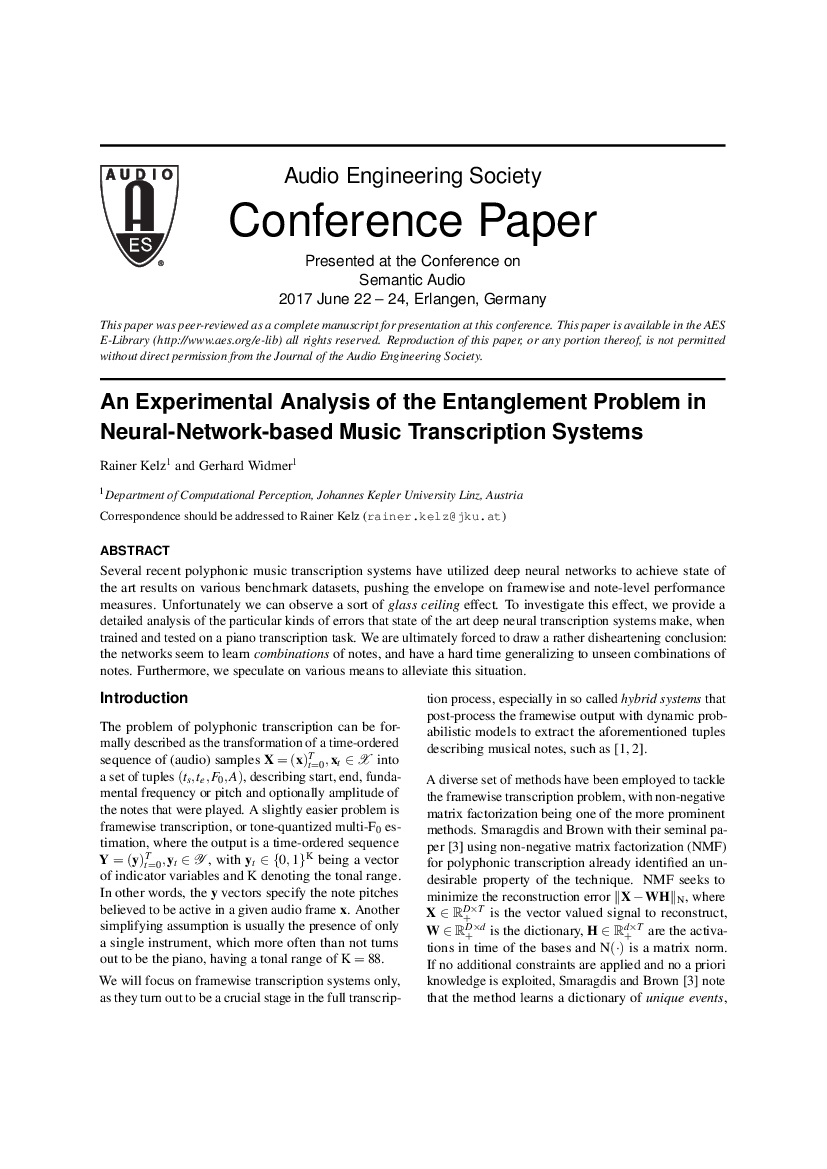Home / Publications / E-library page
You are currently logged in as an
Institutional Subscriber.
If you would like to logout,
please click on the button below.
Home / Publications / E-library page
Only AES members and Institutional Journal Subscribers can download
Several recent polyphonic music transcription systems have utilized deep neural networks to achieve state of the art results on various benchmark datasets, pushing the envelope on framewise and note-level performance measures. Unfortunately we can observe a sort of glass ceiling effect. To investigate this effect, we provide a detailed analysis of the particular kinds of errors that state of the art deep neural transcription systems make, when trained and tested on a piano transcription task. We are ultimately forced to draw a rather disheartening conclusion: the networks seem to learn combinations of notes, and have a hard time generalizing to unseen combinations of notes. Furthermore, we speculate on various means to alleviate this situation.
Author (s): Kelz, Rainer; Widmer, Gerhard
Affiliation:
Johannes Kepler University, Linz, Austria
(See document for exact affiliation information.)
Publication Date:
2017-06-06
Import into BibTeX
Session subject:
Deep Learning
Permalink: https://aes2.org/publications/elibrary-page/?id=18761
(370KB)
Click to purchase paper as a non-member or login as an AES member. If your company or school subscribes to the E-Library then switch to the institutional version. If you are not an AES member Join the AES. If you need to check your member status, login to the Member Portal.

Kelz, Rainer; Widmer, Gerhard; 2017; An Experimental Analysis of the Entanglement Problem in Neural-Network-based Music Transcription Systems [PDF]; Johannes Kepler University, Linz, Austria; Paper 5-1; Available from: https://aes2.org/publications/elibrary-page/?id=18761
Kelz, Rainer; Widmer, Gerhard; An Experimental Analysis of the Entanglement Problem in Neural-Network-based Music Transcription Systems [PDF]; Johannes Kepler University, Linz, Austria; Paper 5-1; 2017 Available: https://aes2.org/publications/elibrary-page/?id=18761